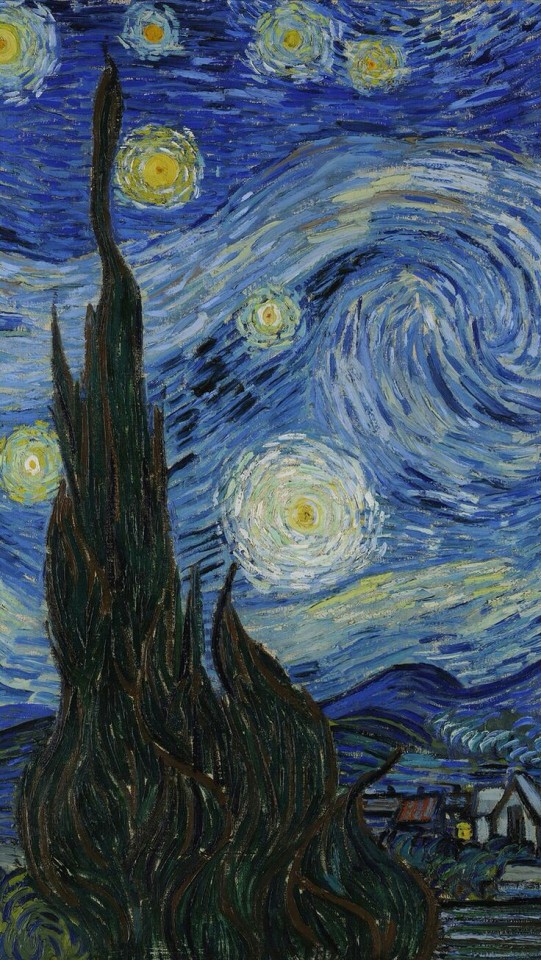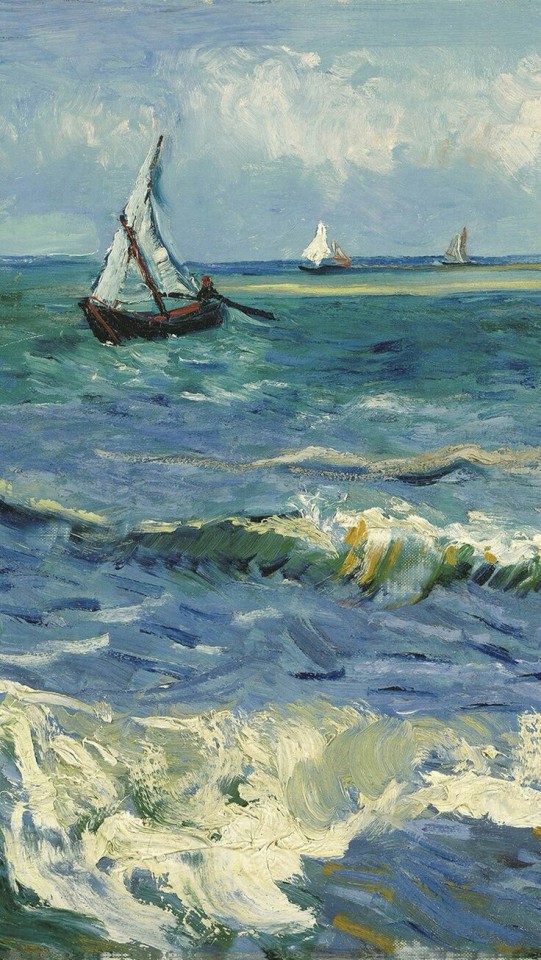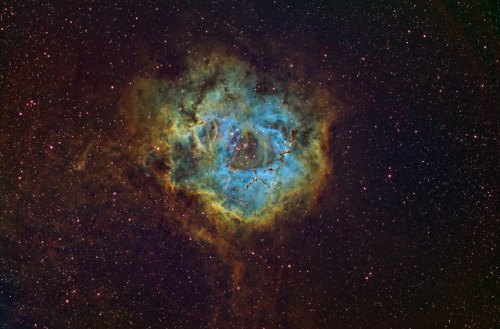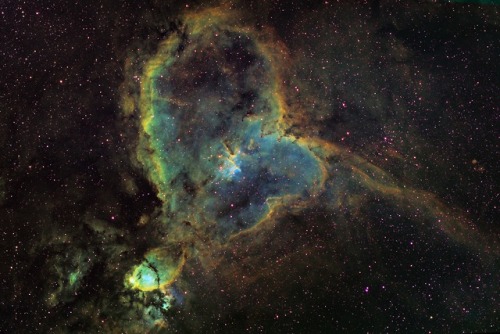
289 posts
Latest Posts by revesmecaniques - Page 3









Mixed Media Painting by Martine Vanderspuy
Based in Sydney, Martine Vanderspuy has had a lifetime love affair with the sea, this has led to her aerial inspired resin art. Through experimentation, she has mastered the difficult process of painting with resin, creating photorealistic work depicting the moods of the ocean. Martine’s paintings inspire the feeling of movement and open a visual window onto the sea. Her bold compositions use the fluidity and translucency of resin to capture the dazzling effects of light and water.
Keep up with all your favorite artists on our Facebook page.
posted by Margaret from tu recepcja

Nadine Bourgne





~a collection of cat wallpaper done by request~

















•Painting wallpaper•
![COLORED HEART. @coconutprada [like]](https://64.media.tumblr.com/dc98855b022353ed0d6e027f0097bef6/tumblr_ouoxx0YX6T1v0p47ro1_640.jpg)
![COLORED HEART. @coconutprada [like]](https://64.media.tumblr.com/255b3fbd076624336d8ff808e5baa02a/tumblr_ouoxx0YX6T1v0p47ro2_640.jpg)
![COLORED HEART. @coconutprada [like]](https://64.media.tumblr.com/957dcd6bede2ed1f890646b02942edad/tumblr_ouoxx0YX6T1v0p47ro3_640.jpg)
![COLORED HEART. @coconutprada [like]](https://64.media.tumblr.com/292b28d052ed0cf9cb43f1f660a3a277/tumblr_ouoxx0YX6T1v0p47ro4_640.jpg)
![COLORED HEART. @coconutprada [like]](https://64.media.tumblr.com/096310cea9f62b6dddc2cf2cc623f31d/tumblr_ouoxx0YX6T1v0p47ro5_640.jpg)
![COLORED HEART. @coconutprada [like]](https://64.media.tumblr.com/867666d78546506b95539ca4364216a2/tumblr_ouoxx0YX6T1v0p47ro6_640.jpg)
![COLORED HEART. @coconutprada [like]](https://64.media.tumblr.com/5533a31043a7518b799043c2fd0a1dcb/tumblr_ouoxx0YX6T1v0p47ro7_640.jpg)
![COLORED HEART. @coconutprada [like]](https://64.media.tumblr.com/429aa348b0ca9dd725863228fa304fa8/tumblr_ouoxx0YX6T1v0p47ro8_640.jpg)
![COLORED HEART. @coconutprada [like]](https://64.media.tumblr.com/23230615ef1bdb04ddb15882cdd78db8/tumblr_ouoxx0YX6T1v0p47ro9_640.jpg)
COLORED HEART. @coconutprada [like]

Why Do Some Galactic Unions Lead to Doom?

Three images from our Spitzer Space Telescope show pairs of galaxies on the cusp of cosmic consolidations. Though the galaxies appear separate now, gravity is pulling them together, and soon they will combine to form new, merged galaxies. Some merged galaxies will experience billions of years of growth. For others, however, the merger will kick off processes that eventually halt star formation, dooming the galaxies.

Only a few percent of galaxies in the nearby universe are merging, but galaxy mergers were more common between 6 billion and 10 billion years ago, and these processes profoundly shaped our modern galactic landscape. Scientists study nearby galaxy mergers and use them as local laboratories for that earlier period in the universe’s history. The survey has focused on 200 nearby objects, including many galaxies in various stages of merging.

Merging galaxies in the nearby universe appear especially bright to infrared observatories like Spitzer. In these images, different colors correspond to different wavelengths of infrared light, which are not visible to the human eye. Blue corresponds to 3.6 microns, and green corresponds to 4.5 microns - both strongly emitted by stars. Red corresponds to 8.0 microns, a wavelength mostly emitted by dust.
Read more: https://go.nasa.gov/2VioFB0.
Make sure to follow us on Tumblr for your regular dose of space: http://nasa.tumblr.com







Tenorless: Gorgeous Flowing Motion
Note: The artwork above is edited gif clips of the work of Tenorless. To see the full length and full motion video with sound, visit the Instagram page of Tenorless.
Tenorless recently graduated in New Media from University of North Carolina at Asheville and has become a passionate advocate of the software Touchdesigner, which is a ‘node based visual programming language for real time interactive multimedia content’ that has captured the imagination of many artists due to its ability to create real time moving images like the clips you see above. It is used by EDM artists such as DeadMau5 for their live shows. Tenorless is an artist with a fertile and wide ranging imagination, and with a tool like Touchdesigner in his hands he is able to create beautifully flowing textures and imagery. Seeing such imagery on giant screens backed by EDM music must be quite an experience.
Posted by David
More unique art on Cross Connect Magazine:
Facebook || Instagram



Nebulae on Flickr (1, 2, 3)

Song to Song (2017)

all we know (ft. phoebe ryan) // the chainsmokers







3D Optical Illusion Drawings by Nester Formentera
Nester Formentera was born in 1991 in the Philippines but learned and developed his artistic skills in Dublin, Ireland. His art is based on his personal emotions and inspirations he gets from his surroundings. Follow his Instagram.com/aartfinesse/
Follow us on Facebook! WARNING - awesomeness inside.
posted by tu recepcja







Dominic Beyeler
Dominic Beyeler’s prolific style can be seen in his daily sketches. Balancing bold colours and swift lines, Beyeler captures a fierce vulnerability within every face. His Tumblr @dominicbeyeler
Keep up with all your favourite artists on our Facebook page.
Curated by Very Private Art








Digital art - Alexy Préfontaine
Graphic designer, photographer, and musician. His digital artwork features rich textures and gorgeous color palettes.
Keep up with all your favorite artists on our Facebook page.
Curated by Very Private Art
Our New Satellite to Study the Edge of Space
We’re about to launch a new satellite called ICON — the Ionospheric Connection Explorer — to study our planet’s boundary to space.

The overlap between Earth’s upper atmosphere and outer space is complicated and constantly changing. It’s made up of a mix of neutral gas (like the air we breathe) and charged particles, where negatively charged electrons have separated from positively charged ions. This charged particle soup reacts uniquely to the changing electric and magnetic fields in near-Earth space, while weather conditions from here on Earth can also travel upwards and influence this region. This makes Earth’s interface to space a dynamic, hard-to-predict region of the atmosphere.

Understanding what causes the changes in this region and how to predict them isn’t just a matter of curiosity. Earth’s boundary to space is home to many of our Earth-orbiting satellites, and it also plays a role in transmitting signals for communications and navigation systems. Unpredictable changes here can garble those signals and even shorten the lifetime of satellites.

ICON, launching on Nov. 7, will study this region with a unique combination of instruments. Orbiting about 360 miles above Earth, ICON will use its cameras to measure winds near the upper edge of Earth’s boundary to space and track atmospheric composition and temperature by studying a phenomenon called airglow. ICON also carries an instrument that will capture and measure the particles directly around the spacecraft, or in situ.

ICON is launching aboard a Northrop Grumman Pegasus XL rocket. On launch day, the Pegasus XL is carried out over the ocean by Northrop Grumman’s L-1011 Stargazer aircraft, which takes off from Cape Canaveral Air Force Station in Florida. About 50 miles off the coast of Florida, the Pegasus XL drops from the plane and free-falls for about five seconds before igniting and carrying ICON into low-Earth orbit.

NASA TV coverage of the launch starts at 2:45 a.m. EST on Nov. 7 at nasa.gov/live. You can also follow along with the mission on Twitter, Facebook or at nasa.gov/icon.

‘Melancholy'
Photographer: Nikita Rourke (Freiy)
The Kepler space telescope has shown us our galaxy is teeming with planets — and other surprises

The Kepler space telescope has taught us there are so many planets out there, they outnumber even the stars. Here is a sample of these wondrous, weird and unexpected worlds (and other spectacular objects in space) that Kepler has spotted with its “eye” opened to the heavens.
Kepler has found that double sunsets really do exist.

Yes, Star Wars fans, the double sunset on Tatooine could really exist. Kepler discovered the first known planet around a double-star system, though Kepler-16b is probably a gas giant without a solid surface.
Kepler has gotten us closer to finding planets like Earth.

Nope. Kepler hasn’t found Earth 2.0, and that wasn’t the job it set out to do. But in its survey of hundreds of thousands of stars, Kepler found planets near in size to Earth orbiting at a distance where liquid water could pool on the surface. One of them, Kepler-62f, is about 40 percent bigger than Earth and is likely rocky. Is there life on any of them? We still have a lot more to learn.
This sizzling world is so hot iron would melt!

One of Kepler’s early discoveries was the small, scorched world of Kepler-10b. With a year that lasts less than an Earth day and density high enough to imply it’s probably made of iron and rock, this “lava world” gave us the first solid evidence of a rocky planet outside our solar system.
If it’s not an alien megastructure, what is this oddly fluctuating star?

When Kepler detected the oddly fluctuating light from “Tabby’s Star,” the internet lit up with speculation of an alien megastructure. Astronomers have concluded it’s probably an orbiting dust cloud.
Kepler caught this dead star cannibalizing its planet.

What happens when a solar system dies? Kepler discovered a white dwarf, the compact corpse of a star in the process of vaporizing a planet.
These Kepler planets are more than twice the age of our Sun!

The five small planets in Kepler-444 were born 11 billion years ago when our galaxy was in its youth. Imagine what these ancient planets look like after all that time?
Kepler found a supernova exploding at breakneck speed.

This premier planet hunter has also been watching stars explode. Kepler recorded a sped-up version of a supernova called a “fast-evolving luminescent transit” that reached its peak brightness at breakneck speed. It was caused by a star spewing out a dense shell of gas that lit up when hit with the shockwave from the blast.
* All images are artist illustrations.
Make sure to follow us on Tumblr for your regular dose of space: http://nasa.tumblr.com
The Kepler space telescope has shown us our galaxy is teeming with planets — and other surprises

The Kepler space telescope has taught us there are so many planets out there, they outnumber even the stars. Here is a sample of these wondrous, weird and unexpected worlds (and other spectacular objects in space) that Kepler has spotted with its “eye” opened to the heavens.
Kepler has found that double sunsets really do exist.

Yes, Star Wars fans, the double sunset on Tatooine could really exist. Kepler discovered the first known planet around a double-star system, though Kepler-16b is probably a gas giant without a solid surface.
Kepler has gotten us closer to finding planets like Earth.

Nope. Kepler hasn’t found Earth 2.0, and that wasn’t the job it set out to do. But in its survey of hundreds of thousands of stars, Kepler found planets near in size to Earth orbiting at a distance where liquid water could pool on the surface. One of them, Kepler-62f, is about 40 percent bigger than Earth and is likely rocky. Is there life on any of them? We still have a lot more to learn.
This sizzling world is so hot iron would melt!

One of Kepler’s early discoveries was the small, scorched world of Kepler-10b. With a year that lasts less than an Earth day and density high enough to imply it’s probably made of iron and rock, this “lava world” gave us the first solid evidence of a rocky planet outside our solar system.
If it’s not an alien megastructure, what is this oddly fluctuating star?

When Kepler detected the oddly fluctuating light from “Tabby’s Star,” the internet lit up with speculation of an alien megastructure. Astronomers have concluded it’s probably an orbiting dust cloud.
Kepler caught this dead star cannibalizing its planet.

What happens when a solar system dies? Kepler discovered a white dwarf, the compact corpse of a star in the process of vaporizing a planet.
These Kepler planets are more than twice the age of our Sun!

The five small planets in Kepler-444 were born 11 billion years ago when our galaxy was in its youth. Imagine what these ancient planets look like after all that time?
Kepler found a supernova exploding at breakneck speed.

This premier planet hunter has also been watching stars explode. Kepler recorded a sped-up version of a supernova called a “fast-evolving luminescent transit” that reached its peak brightness at breakneck speed. It was caused by a star spewing out a dense shell of gas that lit up when hit with the shockwave from the blast.
* All images are artist illustrations.
Make sure to follow us on Tumblr for your regular dose of space: http://nasa.tumblr.com
“There is no coming to consciousness without pain. People will do anything, no matter how absurd, in order to avoid facing their own Soul. One does not become enlightened by imagining figures of light, but by making the darkness conscious.”
— C.G. Jung (via syntheticphilosophy)

Pierrette Bloch Ohne Titel, 1975 Tusche auf Papier, 75 x 57 cm Courtesy Galerie Greve, Köln, Paris, St. Moritz. Foto: Adam R.

I hope you see things that startle you. I hope you feel things you never felt before. I hope you meet people with a different point of view. I hope you live a life you`re proud of, and if you find that you`re not, I hope you find the strength to start all over again.
The Curious Case of Benjamin Button (2008), Dir. David Fincher (via wnq-movies)

Fiona Rowett
20 SONG TAG
Favorite Song: Honestly I have too many favorite songs but my current favorite song o could be Car Radio by Twenty One Pilots and I think my favorite song of all times may be Smell Like Teen Spirit by Nirvana
A Song You Hate: none
A Song That Makes You Sad: Wake Me Up When September Ends by Green Day
A Song That Reminds You Of Someone: Gone, Gone, Gone by Phillip Phillips, always reminds me to my boyfriend Manny 😍
A Song That Makes You happy: All The Small Things by Blink-182
Song That Reminds You Of A Specific Moment: Thinking out loud by Ed Sheeran because it was the song of our (Manny And I) first slow dance
Song Whose Lyrics You Know Perfectly: Blue Jeans by Lana Del Rey
Song That Makes You Dance: ANYTHING BRITNEY SPEARS
Song To Help You Sleep: Landslide by The Smashing Pumpkins
Song You Secretly Like: IDFWY by Big Sean
Song With Which You Identify Yourself: TOO MANY SONGS
A Song That You Used To Love And Now You Hate: None
A Song You Know How To Play: I Don’t play any instrument :(
A Song From Your Favorite Album: My favorite album is The Black Parade by My Chemical Romance and my favorite song from that album is Teenagers
A Song you Would Like To Sing In Public: Colors by Halsey
Song You Like To Drive to: I have an Indie Playlist for that
Song Of Your childhood: HollaBack Girl by Gwen Stefani, Fergalicious by Fergie, American Idiot by Green Day, Clint Eastwood by Gorillaz, Baby One More Time By Britney Spears And Of Course Burnin Up by The Jonas Brothers
Song You Would Like To Sound At Your Wedding: I will follow You into the dark by Death Cab for cutie
Song You Would Like To Sound At Your Funeral: Pepsi / Coke Suicide by Elvis Depressedly
A Song That No One Expects You To Like: Not Sure about this one
So this was my 20 Song tag, It was super hard for me doing this because I love too many songs… CL
An intimate relationship is not necessarily a physical relationship. Rather, it is a trusting, close friendship with another person in which one can be honest without fear of rejection.
Erik Erikson (via fyp-psychology)
I exist as I am, that is enough.
Walt Whitman (via wordsnquotes)